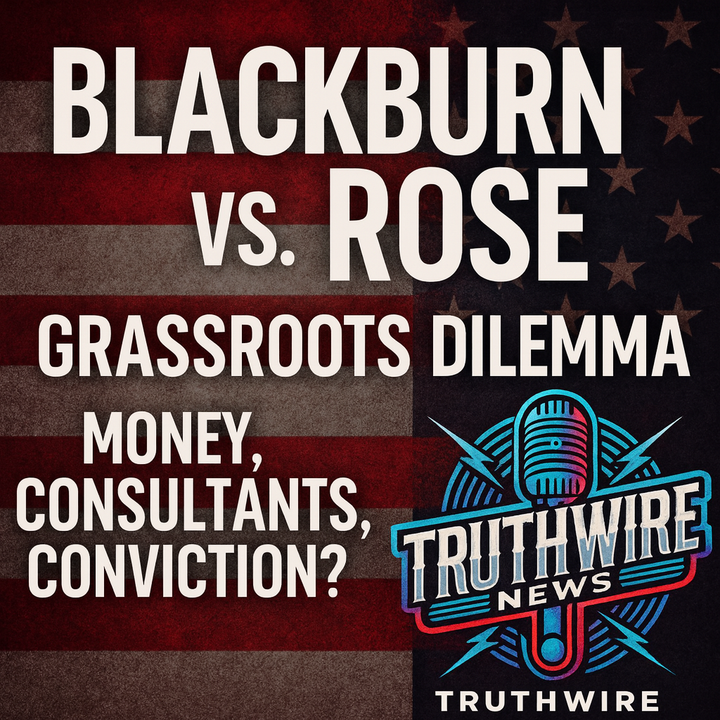The surveillance state America built after 9/11 has finally come for its own. Senators once shielded by power—like Marsha Blackburn, who voted for the Patriot Act—now know firsthand the reach of the machine they helped create.
When the Patriot Act passed in the emotional aftermath of September 11, 2001, its promise was straightforward: empower the federal government to stop terrorism before it happens. Americans were frightened, the skies were empty, and “national security” was a phrase that silenced dissent. But nearly twenty-five years later, Tennessee’s own U.S. senators — Marsha Blackburn and Bill Hagerty — are discovering that the tools once designed to monitor foreign threats have evolved into instruments of domestic scrutiny.
According to recently revealed FBI records, Special Counsel Jack Smith’s Arctic Frost investigation tracked the phone records and communications of nearly a dozen Republican senators — including Blackburn and Hagerty — during the January 6th probe. FBI Deputy Director Dan Bongino briefed lawmakers such as Lindsey Graham, Ron Johnson, Josh Hawley, and others on how the Bureau, working with Smith’s team, conducted a “preliminary toll analysis” of their calls. The data included who they called, when, and from what locations.
This wasn’t a leak or a rumor — it was confirmed documentation. Senators were surveilled by their own government.
Hagerty’s response was sharp and personal. In a letter to Verizon, he demanded to know how his private phone data had been handed to the FBI without notice or consent. “Without my knowledge,” he wrote, “the FBI obtained confidential information concerning my cell phone use.” Blackburn has since joined in, sending letters to Verizon, AT&T, and T-Mobile demanding transparency about why these companies “allowed this invasion of privacy to occur wholly unchallenged.”
The outrage is justified. But the irony is thick.
Marsha Blackburn — now demanding answers — voted for the very architecture that made this intrusion possible.
Back in 2001, as a member of the U.S. House of Representatives, Blackburn voted in favor of the USA PATRIOT Act, the sweeping anti-terrorism law championed by President George W. Bush and passed with overwhelming bipartisan support. At the time, she and others defended it as a necessary trade-off — a momentary expansion of government power in exchange for safety. But as history has made painfully clear, government powers once granted rarely retreat.
The Patriot Act rewired how surveillance worked in America. It expanded the Foreign Intelligence Surveillance Act (FISA) to allow “roving wiretaps,” broad “business record” access, and the ability to secretly compel third-party companies — from telecoms to banks — to turn over data. Its infamous Section 215 enabled the bulk collection of metadata — who called whom, when, and for how long — without a warrant. That same logic is precisely what’s being used now under the Department of Justice’s “Arctic Frost” operation.
In other words: the FBI didn’t need to break the law to do this. The law already gave them permission.
Over the years, the Patriot Act and its FISA extensions have enabled some of the most invasive government surveillance programs in U.S. history. The NSA’s bulk data collection, exposed by Edward Snowden in 2013, showed that billions of phone records from everyday Americans were swept up “incidentally.” The Carter Page FISA warrant, obtained under dubious pretenses during the Trump–Russia investigation, demonstrated how intelligence tools meant for national defense could be repurposed for political ends.
Each scandal prompted hearings, reforms, and renewed promises that such powers would never again be misused. Yet, as this latest revelation proves, the machinery of surveillance keeps turning — only the targets change.
Blackburn, to her credit, now finds herself among those demanding accountability. But her predicament underscores a lesson that lawmakers have too often ignored: when you give government a power, you give it forever. And when that power is surveillance, you should assume that one day, it will be turned on you.
The Patriot Act’s defenders once argued that “if you have nothing to hide, you have nothing to fear.” That phrase, so casually uttered in the wake of tragedy, now sounds almost mocking. Senator Blackburn had nothing to hide — and yet the FBI still traced her calls, logged her contacts, and followed her digital footprints under the color of authority she herself helped legalize.
Senator Hagerty called it “an extraordinary intrusion on the separation of powers.” He’s right. But it’s also a predictable one. The same mechanisms that allow the federal government to bypass warrants for “national security” have always blurred the line between intelligence and politics. The FISA Court — which operates in near-total secrecy — has authorized thousands of surveillance requests against U.S. citizens over the years, with minimal accountability and a rejection rate of less than 1%.
For decades, warnings from civil libertarians went unheeded. The ACLU, EFF, and even the Privacy and Civil Liberties Oversight Board have all documented how Patriot Act authorities were abused — from the FBI’s misuse of National Security Letters to the NSA’s warrantless “backdoor searches.” Every president since Bush has defended the program as “necessary.” Every administration has found new ways to stretch it.
And now, that power has come home to Tennessee.
The revelation that Arctic Frost used toll analyses to monitor sitting U.S. senators is not just a privacy violation — it’s a flashing red light. It proves that surveillance doesn’t stop at ideology, or state lines, or congressional privilege. It’s a system that runs until it’s stopped.
Marsha Blackburn is now living proof that no one — not even the lawmakers who created the system — is immune from its reach.
If she and others in Congress truly want answers, they’ll have to do more than demand explanations from Verizon. They’ll have to confront the law itself — the Patriot Act — and finally dismantle the surveillance state they once empowered.
The question is whether this time, the lesson will stick.
If you support what we do, please consider donating a gift in order to sustain free, independent, and TRULY CONSERVATIVE media that is focused on Middle Tennessee and BEYOND!
COME TO OUR EVENT FOR A GREAT EVENING OF BBQ AND GRASSROOTS PATRIOTISM!! SCAN THE QR CODE, OR CLICK HERE!!






Comments ()